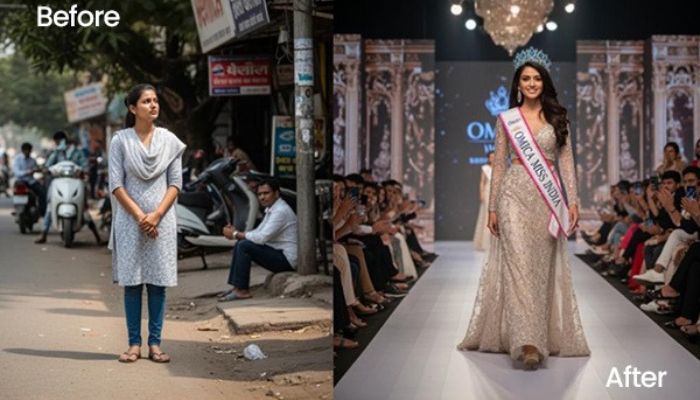Quick answer: Pageants can be a real engine for empowerment when they prioritize skills and civic voice and not just looks. Here’s the clear, practical breakdown of how pageants help women gain confidence, careers, and influence, and what the actual impact of beauty pageants is.
If you’re curious about how pageants in India shape skills, education, and personal growth, check out our detailed guide: Why Beauty Pageants Are Important in India: Scholarships, Skills, and Growth.
What empowerment means in the pageant context
Here’s the thing: Empowerment isn’t a trophy. It’s new ability and agency — better public speaking, clearer career goals, access to networks and sometimes financial help like scholarships or sponsorships. When we talk about the impact of beauty pageants, we’re measuring those practical changes in people’s lives.
1. Skills that transfer off-stage
Pageant prep forces concentrated practice in skills employers and institutions value:
- Public speaking and Q&A practice
- Interview technique and media training
- Stage presence, posture and professional presentation
- Project planning for social causes or platform work
Those routines build confidence that shows up in job interviews, campus leadership roles and local activism. Treat the pageant run like a skills bootcamp: mock interviews, speech drills and real-world tasks matter more than costume changes.
2. Real pathways: education and economic opportunity
A lot of pageant systems offer tangible support: Scholarships, sponsored training, brand partnerships and local modelling or hosting gigs. For many contestants, those leads turn into internships, freelance work, or funded study.
Don’t oversell it; not every crown equals a career. But the platform increases visibility. If you want returns from competing, document everything: press clippings, professional photos, media mentions and contact lists. That becomes your portfolio.
3. Platform for advocacy and social impact
Modern pageants often require a social platform. That requirement forces contestants to plan real outreach campaigns, which builds fundraising, organizing and communication skills.
When contestants use the stage to campaign on women’s health, education or community projects, they turn personal experience into public influence. That’s a direct way pageants create agents of change.
4. Community, mentorship and networks
Competitions bring together coaches, past titleholders, sponsors and peers. That network is a resource: mentorship, introductions to media, and sometimes long-term partnerships. A supportive pageant community can be a career multiplier.
If you’re entering, be intentional: keep contact lists, follow up with judges or mentors, and continue training after the event. Short-term exposure matters, but sustained relationships create career momentum.
5. Confidence and identity work
For many women, the single biggest change is internal: They leave with stronger self-belief. Public performance and constructive feedback help contestants reframe their narratives from anxiety to agency.
That’s not universal. For some, pageantry can trigger comparison and body-image stress. That’s why the structure around the event matters: coaching, counselling and ethical judging make a measurable difference.
6. Common criticisms and how modern pageants respond
Critiques are valid. Pageants historically emphasized narrow beauty standards and sometimes encouraged unhealthy behaviors. Modern organizers are responding in three ways:
- Expanding judging criteria to include talent, advocacy and community work.
- Adding age-appropriate rules, chaperones and mental-health support for minors.
- Offering training that emphasizes health, nutrition, balance and body positivity.
A modern, ethical pageant reduces objectification risk by centering skills and service.
7. How organisers and parents can keep pageants empowering
If your goal is empowerment, screen pageants with this checklist:
- Do they publish judging criteria and a rulebook?
- Is there a documented scholarship or prize structure?
- Do they offer or connect contestants to media training, interview coaching and mentorship?
When the answers are yes, the event is likely to produce durable benefits
8. Measuring the impact: simple metrics that matter
Track outcomes to know if the pageant delivered empowerment:
- Improvement in interview or speech scores after 3 months.
- Scholarships or funding received.
- One or more verified career leads (modelling, hosting, internships) within 6 months.
- Sustained community project work or advocacy activity post-pageant.
If contestants hit several of these, the impact of beauty pageants on their lives is concrete, not just symbolic.
Final take 📝
Ready to experience the real impact of beauty pageants for yourself? Join Omica Pageant and start building your skills, confidence, and network today. Register now or explore more about our events on the Omica home page.
A: They can. When pageants focus on skills, scholarship and advocacy, contestants gain confidence, networking opportunities and career leads.
A: They can be if organizers emphasize narrow standards. Choose pageants with ethical rules, positive coaching and health-first guidance.
A: Ask for rules, prize details, chaperone policies and proof of past contestant outcomes.






